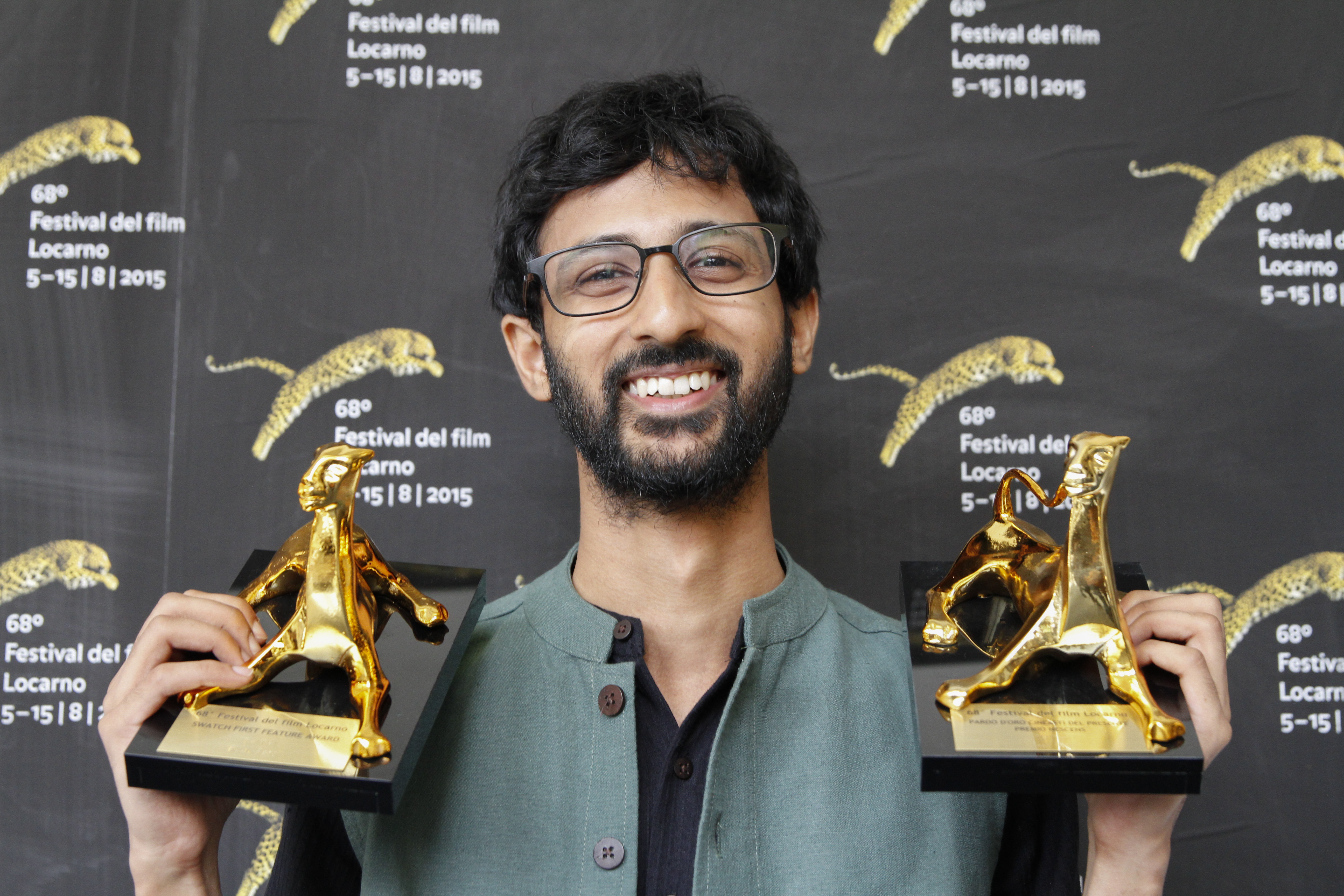Indian Filmmakers On A Festival High

Times are a-changing for Indian cinema. For over a decade, Indian films made it sporadically to the top echelons of international festivals. The hallowed ones - Cannes, Berlin and Venice – have not placed an Indian film in competition for many a year. Only in recent years has Cannes taken an Indian film in its other main sections as has Venice and Berlin (where the Forum has over the years consistently screened the best of Indian cinema).
Suddenly, 2015 is a-bubble with kudos, hail, fame for new Indian cinema. The weighty doors of Cannes Un Certain Regard opened not to just one but two independent Indian filmmakers (a rare privilege and a record for India). They were the Punjabi film “Chauthi Koot” by noted director Gurvinder Singh (the first in this language at Cannes) and the debut film “Masaan”, which presented a new-age Banares holy city. Hurrahs resounded when the latter’s director, Neeraj Ghaywan, won two awards – Best Film, Camera d’Or and the Fipresci award. Locarno, under director Irene Bignardi’s regime in early 2000, presented major slots on Indian cinema but later, India barely made it there. The jinx was broken this year when Locarno placed the Kannada film “Thithi” in its competitive sidebar Cinema of the Present for first or second-time filmmakers. Here too, the spotlight was on its fledgling director Raam Reddy when he won two top awards.
The current Autumn season brings more glory to our known and emerging filmmakers. Toronto, celebrating its 40th year, also celebrates Indian cinema with six unusual films, the majority made by women. Although India does not feature in the red-carpet parade of the Gala (a section for films with a larger canvas and impact), they feature in the reputed section, Special Presentations.
Heading the list is “Talvar” directed by Meghna Gulzar, a hard-hitting dissection of the Aarushi murder case that took place in Noida. This film is making it back to back to all three of the top international festivals of September/October – Toronto, Busan and London BFI. “Talvar” is co-produced by Vishal Bhardwaj (who also scripted the film and scored its music). It stars Konkana Sen Sharma, Neeraj Kabi and Irrfan Khan. “Parched”, Leena Yadav’s zesty look at empowered village women, has its world premiere at Toronto. There is Pan Nalin’s intriguing “The Angry Indian Goddesses” on today’s solo-flying, feisty young women. The Indian documentary is represented by a trio of Toronto regulars. “An Old Dog’s Diary” by Shai Heredia and Shumona Goel, is a puzzle-piece evoking the works of painter Frances Newton Souza. Shambavi Kaul’s “Fallen Objects” carries this director’s idiosyncratic cinematic stamp. Mumbai’s Megha Ramaswamy presents the North American premiere of her short film “Bunny” on a small girl and her pet toy that overnight gives her the shivers.
International filmmakers increasingly drawn to India for content and locales is strong at 2015 Toronto. Deepa Mehta leads with “Beeba Boys” (Canada) in the Gala section with actor Randeep Hooda in the main role. Her film is on a Sikh mobster leading his men on controlling Vancouver’s drug trade. American director Mathew Brown premieres his film, “ The Man who Knew Too Much” on the legendary mathematician, Ramanujan and unusual casting with Dev Patel in the title role. Executive producer here is New York based Bharatnatyam exponent and curator Swati Bhise, who provided a guiding hand on the film’s cultural authenticity. Finally, Toronto has the Cannes Palme d’Or winner “Dheepan” directed by Jacques Audiard, a French film on Tamil refugee’s making their endangered way to France heightened by Paris-based Sri Lankan actor Kalieaswari Srinivasan’s charged performance. This film created another impromptu record when its packed Press Conference in Cannes was run mostly in Tamil. In documentaries, New York-based Geeta Gandhbir and Pakistani filmmaker Sharmeen Obaid Chonoy’s “A Journey Of A Thousand Miles: Peacemakers” follows three Bangladeshi policewomen who served with the UN peacekeeping mission to Haiti in the aftermath of the devastating 2010 earthquake.
The Busan festival follows at the start of October with as many as 16 films from India. The competition section here is only for first or second films, and from India, the film is Hari Vishwanath’s “Radio Set”, in Tamil. BFI London International Film Festival follows a week later with as many as 11 films connected with or made in India. Deepa Mehta’s “Beeba Boys” is competing in the Gala section. The documentary “An Old Dog’s Diary” is also in competition. And “Dheepan” features again, an exemplary film of the enforced diaspora of our times which should be seen at every festival, big or small.



